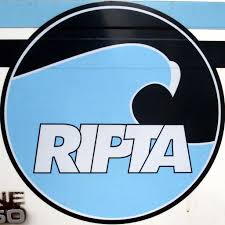
Mandate Has Been Extended Through January 18, 2022
The Rhode Island Public Transit Authority (RIPTA) is advising passengers that the Transportation Security Administration (TSA) has extended the federal mandate requiring face masks to be worn when using public transportation – including trains and buses. The mandate, which has been in place since February 1, 2021, has now been extended through January 18, 2022.
The TSA issued the updated directive late last week. It states that face masks remain a requirement for passengers and employees on “all transportation networks throughout the United States, including at airports, onboard commercial aircraft, on over-the-road buses, and on commuter bus and rail systems, airplanes, public transportation, and intercity surface transportation.”
“RIPTA will continue to follow all pertinent mandates and advisories as we work to keep our passengers and employees safe,” said Scott Avedisian, RIPTA’s Chief Executive Officer.
This marks the second extension of the federal mask requirement for public transportation which was first issued on January 31, 2021, and initially slated to expire on May 11, 2021. In April, the TSA announced that it was extending the mandate through September 13, 2021.
Passengers under the age of two and those who have a disability that prevents them from safely wearing a mask are exempt on RIPTA buses. Those who cannot comply due to a disability must contact RIPTA prior to traveling onboard any of its vehicles. They must seek an exemption in advance by calling Customer Service at 401-784-9500, ext. 2012. For general information on traveling safely with RIPTA during the pandemic, please visit https://www.ripta.com/covid-19/.
The Rhode Island Department of Health advised the public that people need to wear masks in a number of settings, whether they are vaccinated or not. These situations include:
| ▪ | Anytime a business, school, camp, healthcare setting or other entity requires it. |
| ▪ | On public transportation, including buses, planes and trains. |
| ▪ | At transportation hubs and when in enclosed, or semi-enclosed transit stops and waiting areas. |
| ▪ | When working in a healthcare setting where suspected or confirmed COVID-19 patients are treated. |
| ▪ | When required by other federal law or regulations. |








Comments